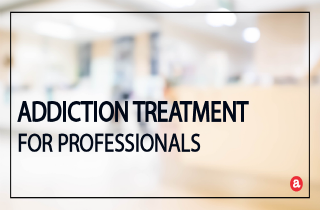Professionals and addiction treatment
Substance abuse and addiction does not discriminate. Being a professional does not mean you are different than other populations nor does it make one immune to addiction. In fact, high stress professional jobs may even drive some people to start drinking or doing drugs. Nonetheless, that is no excuse to let an addiction go untreated.
Today, substance abuse is believed to affect more and more professionals, and addiction treatment is essential for overcoming the resulting addictions. Professionals, like other members of our society, do have some special needs when it comes to treatment, however. Addiction treatment programs for professionals should include the following for the greatest chances of success.
- Intervention services
- Individualized treatment plans
- Luxury amenities
- Group counseling with like-minded individuals
- Focus on family during the recovery process
- Addiction education
- Strong focus on aftercare
Professional drug addiction treatment
Just as being a professional does not make one immune to addiction, it also does not make drug addiction treatment much different than traditional addiction treatment. Typically, the steps for all addiction treatment – including professional drug addiction treatment – are the same, regardless of whether a person is unemployed, a blue collar worker, or a corporate professional. The basic steps in professional drug addiction treatment are listed below.
Screening and assessment
Like other addicts, professionals must got through a thorough screening and assessment before starting an addiction treatment program. This allows an addiction specialist to determine the severity of the addiction and help the addict choose a treatment program based on his or her individual situation.
Detoxification
Withdrawal from drugs and alcohol is often uncomfortable and sometimes dangerous. Going through withdrawal without the help of an addiction treatment program or dedicated detox facility also increases the chances of a relapse. Because of this, many professionals are urged to go into a dedicated detox center until their bodies had gotten rid of all traces of drugs and alcohol. This process can last anywhere from a few days to a week.
Psychological treatment
Several different types of psychological treatment are used during professional drug addiction treatment. Common approaches include individual therapy, group therapy, and family counseling. Attending 12-step or other self-help groups is also highly recommended.
Pharmacotherapy
Some recovering addicts respond well to pharmacotherapy. This involves taking prescription medications that work by decreasing the urge to drink or use drugs or making the effects of such substances unpleasant. Pharmacotherapy is not used in all cases, however.
Aftercare
The period of time after a professional has completed addiction treatment is crucial. Part of a successful recovery typically includes aftercare. Once a professional has completed an addiction treatment program, they will continue to attend outpatient counseling and therapy sessions, which can help them cope better with living a substance-free life.
Professional addiction treatment barriers
Like most addicts, professionals have a number of obstacles that they must overcome in order to go through a successful addiction treatment program. Some of the more commonly cited professional addiction treatment barriers are listed below.
- Lack of insurance
- Inability to pay for treatment
- Inability to find suitable treatment
- Family responsibilities
- Career responsibilities
- Fear of losing job
- Denial
- Shame
- Stigma surrounding addiction treatment
Addicted professionals
Contrary to what they may believe, addicted professionals should not be ashamed of their addiction, nor are they alone. In fact, they have a number of places to turn to for help, starting with their own physicians. Medical professionals typically have the ability to screen individuals for addiction and refer them to a suitable treatment program.
Some companies may also have programs in place to help addicted professionals as well. For instance, they may run a dedicated substance abuse facility, or they may simply help pay for treatment.Going through addiction treatment, does not necessarily adversely affect a professional’s career. For instance, many employers will now hold a professional’s position until he or she completes an addiction treatment program. The employee is simply considered to be away on medical leave during treatment. To find out about addiction treatment services that your employer may offer, professionals can speak to their supervisors or members of the human resources department.
Professional addiction questions
Reaching out for addiction help if you are or a loved one is a professional can be a daunting experience. However, it must be done in order to overcome the strong ties of drugs and alcohol. Do you have any questions or concerns regarding professional addiction treatment? Leave them in the comments section below, and we’ll work hard to reply and help get you pointed in the right direction.









Related Posts